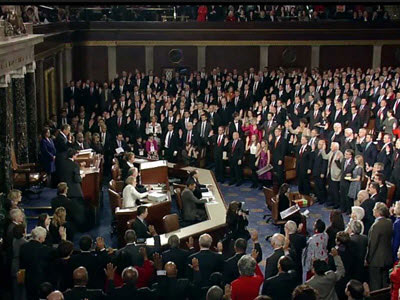Report from the NBR Analysis Series
Whose Pacific Century?
The 113th Congress and Asia
This report examines the issues in Asia that the 113th Congress will confront—from the pace and scale of military drawdown in Afghanistan to an increasingly dangerous North Korea—and argues that domestic policy choices on debts and deficits will ultimately determine whether the U.S. can realize the promise of its strategic rebalance toward the Indo-Pacific.
Executive Summary
MAIN ARGUMENT
Issues before the 113th Congress include the planned withdrawal of combat forces from Afghanistan in 2014 and the future relationship with Pakistan; a decision on “trade promotion authority” for future trade agreements, including the possible 2014 conclusion of a Trans-Pacific Partnership agreement; sustaining and resourcing the U.S. strategic “rebalance” to Asia in ways that invest old allies like Japan and new partners like India in closer long-term cooperation with the U.S.; the progress of last year’s unexpected reconciliation with Burma/Myanmar, including the status of the recently waived investment and trade sanctions; the appropriate response to North Korea’s aggressively advancing nuclear and missile programs; stalemated negotiations on trade and climate change; and growing questions about assertive Chinese regional diplomacy and maritime claims, which have deeply unsettled Asian security and forced both Congress and the Obama administration to think hard about the foundations of U.S. regional strategy. To these topics, the 113th Congress will likely bring a strong bipartisan consensus. But domestic-policy disagreements may undercut the ability of the U.S. to resource and sustain the rebalance to Asia over the longer term, threatening vital U.S. interests in the Indo-Pacific.
POLICY IMPLICATIONS
- Nationalist and territorial conflicts driven by China’s aggressive posture, as well as North Korea’s missile and nuclear threats, render the U.S. role in Asia even more important and require the U.S. to adapt its military, diplomatic, and economic leadership to intensifying challenges.
- Deep divisions within Congress on domestic policy, and fiscal policy in particular, may have significant effects on the capacity of this and future administrations to implement policy toward Asia.
- Choices on taxation, spending, and debt are also choices about strategy. Their influence on the long-run capacity of the U.S. to shape the Indo-Pacific may be felt years after the issues of 2013 fade.





